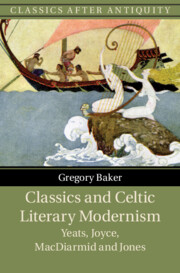
-
- You have access
- Open access
- Cited by 2
-
Cited byCrossref Citations
This Book has been cited by the following publications. This list is generated based on data provided by Crossref.
2022. Books Received 72.2. The Classical Review, Vol. 72, Issue. 2, p. 751.
Sorensen, Jennifer Moore, Robbie Donati, Marta Parsons, Katherine Roach, Rebecca Stringfellow, Sophie Rodríguez Martin, Gustavo A Fallow, Catriona Zhou, Wei Losasso, Mae and Wheatley, David 2024. XIVModern Literature. The Year's Work in English Studies, Vol. 103, Issue. 1, p. 916.
- Publisher:
- Cambridge University Press
- Online publication date:
- January 2022
- Print publication year:
- 2022
- Online ISBN:
- 9781108953825
- Creative Commons:
-
This content is Open Access and distributed under the terms of the Creative Commons Attribution licence CC-BY-NC-ND 4.0 https://creativecommons.org/creativelicenses


